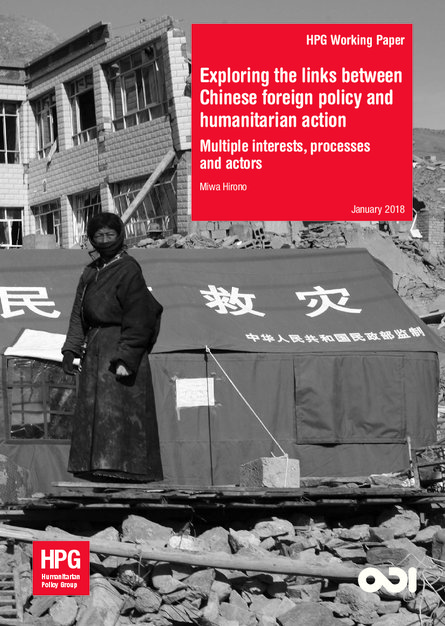
China’s emergence as a global player often brings with it accusations that its humanitarian action will be used as a disguise, or a means, to expand its power. But this paper demonstrates that such accusations are overly simplistic. Rather, China’s engagement in humanitarian aid derives from a very complex array of national interests and processes, paths and actors in foreign policy-making.
China’s integration into the international humanitarian system is welcome news to people in need as well as to more ‘traditional’ donors in the Development Assistance Committee (DAC) because integration can facilitate better coordination with other international humanitarian actors. But the current lack of collaboration between DAC donors and China could lead to a disproportionate focus on a small number of countries with which China happens to want to improve bilateral relations; to uncoordinated efforts within a particular area of humanitarian crisis; and to increased mistrust between DAC donors and China.
Although China sees increasing the quantity and quality of its assistance as furthering its national interests, giving priority to improving diplomatic relations through the provision of humanitarian aid can lead to preferential treatment for some recipients over others or missed opportunities to assist in other humanitarian crises. However, the pluralisation of actors involved in humanitarian action represents an enormous opportunity, as more civil society actors and commercial companies participate in operations with more resources, local knowledge and individual contacts.
In order to identify ways in which China and ‘traditional’ humanitarian actors can work together more effectively and efficiently, this paper asks the central question: how does China’s foreign policy shape its engagement in humanitarian action? It also proposes a series of recommendations to the Chinese humanitarian community and DAC donors.